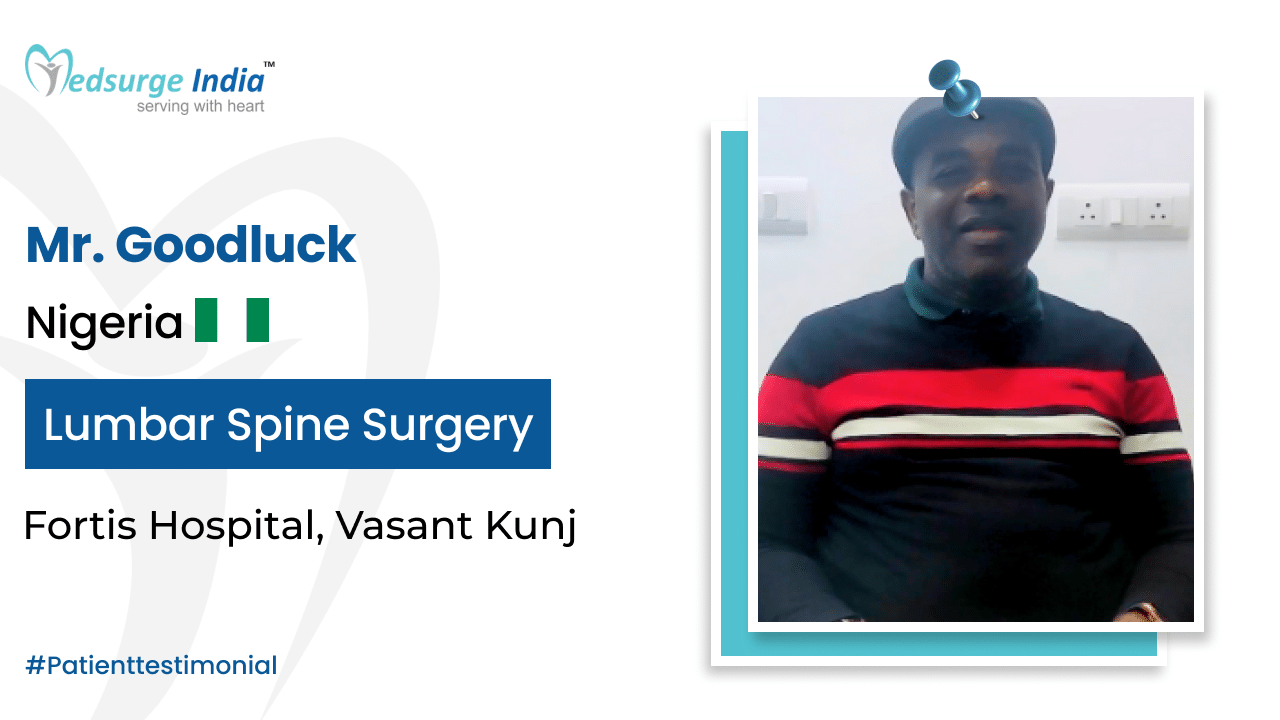
Most often, hearing aids increase sound volume. Different from other hearing aids, cochlear implants directly stimulate the hearing nerve without going through the damaged portion of the ear. This makes sounds clearer and makes it easier for you to hear the conversation. Additionally, it can assist you in regaining your social confidence, reuniting with friends and family, and leading a fuller life. A patient will need to see an audiologist and an ENT surgeon before receiving a Cochlear Implant treatment in Turkey. Following some tests to determine whether the patient would be a good candidate for the implant, the attending physicians will only start the operation once all of the diagnoses have been made.
Cochlear Implant cost in Turkey is reasonable when compared to that of other developed nations like the US, America, etc. The proficiency of the audiologist and ENT surgeon as well as the cutting-edge medical technology utilized at the top Turkey hospitals play a role in the success.
What Is a Cochlear Implant
An electronic medical device known as a cochlear implant helps people with moderate to severe hearing loss. It helps adults, kids, and infants with hearing loss. The cochlear nerve is stimulated electrically by the device. It consists of both inner and outside parts. Behind the ear is where the external component is located. It is made out of a microphone that takes in sound waves. The sounds are analyzed by a speech processor, which converts them into digital signals. The internal receiver receives these signals after they are sent to a transmitter. The transmitter and receiver are bonded together by a magnet. Behind the ear, the internal component is placed just below the skin. The digital signals are converted into electrical impulses by the receiver when they are received.
The cochlear nerve is stimulated by these impulses when they are applied to electrodes in the cochlea. They are sent to the brain via the nerve. The end outcome is the ability to hear. Although the noises will be heard by the brain, they are not the same as what we normally hear. It needs speech treatment and rehabilitation to understand how to perceive sounds correct.
Cochlear Implant Cost In Turkey
Cochlear Implant Cost in Turkey starts from INR 11,67,000 (14,000 USD) and is comparatively low as compared with other countries even though Turkey is one of the best medical tourism countries in the world. In terms of quality and standard, the level of medical care and services is comparable to that of the best hospitals in the world and even after accounting for travel, hotel, and food expenses.
As there are a number of variables that affect Cochlear Implant Cost in Turkey, including the type of treatment, the method employed, as well as the hospital and location of choice, the doctor’s qualifications, and so on. For this reason alone, many people come from all over the world for medical care in India for a variety of reasons, such as the Cochlear Implant Cost in Turkey being much lower compared to other countries which is by far the most important.
Factors Affecting the Price of Cochlear Implant in Turkey
The following are some variables that will affect the treatment of Cochlear Implant in Turkey:
- Running room, recovery room fees
- The fee to your group of physicians (Surgeons, Anesthetist, dieticians, etc )
- Medicines and sterile dressings
- Regular evaluation and diagnostic processes
- Is Determined by the treatment choices: Implant price
- Price of the Implant
- Cochlear Implant Cost in Turkey can depend on the type of hospital and rooms you stay.
For foreign patients traveling to India, Medsurge India provides the finest Cochlear Implant in Turkey at a reasonable cost, all while being supervised by top medical professionals.
Who Can Receive a Cochlear implant?
The following are broad criteria; candidature is also determined by a variety of additional considerations. Consult your audiologist, ENT physician, or hearing healthcare specialist to find out if you or a loved one could benefit from a cochlear implant.
Adults
Regardless of whether they lost their hearing before or after acquiring a language, adults may be eligible for cochlear implantation. Adults who become postlingually deaf before losing their hearing (postlingually deafened) often experience more success with cochlear implants than those who did not (prelingually deafened). Adult applicants are often qualified for implants if they:
- A substantial or severe hearing loss in both ears.
- The use of hearing aids is of little or no help.
- Have no health issues that would put them in danger during surgery.
- Possess a strong desire to interact with the hearing environment and use speech to read, speak, and listen.
Children
Cochlear implants may be appropriate for infants as young as 12 months old who have hearing loss. The earliest feasible implantation is advised by experts in order to expose kids to sounds during the crucial time of language development. To get the most out of the device, kids must go through extensive speech and language treatment after implantation. Candidates who are children are acceptable are those who:
- Children suffering from severe hearing loss in both sides of the ears.
- Get little to no advantage from wearing hearing aids.
- Are in good health and do not have any ailments that might make surgery risky.
- Recognize (when able), together with their parents, their part in the efficient application of cochlear implants.
- Get assistance from a curriculum that places a strong emphasis on the improvement of auditory abilities.
Get Free Cost Estimation
Procedure
How Does a Cochlear Implant Work
A cochlear implant and a hearing aid are fundamentally unlike devices. Hearing aids magnify sounds so that ears with hearing loss may hear them. Bypassing damaged ear tissue, cochlear implants stimulate the auditory nerve directly. The auditory nerve transmits impulses produced by the implant to the brain, which interprets them as sound. It takes some time to retrain one’s ears to hear with a cochlear implant since it differs from regular hearing. However, it enables a lot of individuals to hear conversations in person or on the phone, interpret other noises in the surroundings, and identify warning signs.
What is the Procedure for Cochlear Implant Surgery
A hospital or clinic is where the cochlear implant procedure is performed. The procedure takes around two hours. In order to make the patients unconscious during the surgery, a general anesthetic is administered.
During Surgery
- To guide the electrode to the cochlea, the surgeon makes a tiny incision behind the ear and then cuts a hole in the mastoid bone.
- The cochlea is where the implant electrodes are implanted.
- The space between the muscle and bone behind the ear is where the surgeon inserts an internal processor. An external voice processor that will be worn outside the skin feeds information to the inside processor.
- The wounds are then stitched up, and the patient is brought into the recovery area where he or she is carefully observed as they come to from the anesthetic.
After many hours of monitoring, the patient is released and allowed to return home to rest. Following surgery, the implanted side’s overall hearing will be altered; the device will be calibrated a few weeks later, giving the incisions time to heal. You won’t be able to utilize a hearing aid in the operated-on ear during this period.
Recovery
You are given instructions on how to care for the incisions before leaving the hospital or operation facility, which may include:
- How to remove bandages and take care of sutures
- when to start cleaning the area surrounding the incision once more (usually a day or two after the surgery)
About a week following the procedure, the surgeon will examine the incisions and take out the stitches at a follow-up session. It is often advised to let the region three to four weeks to heal before turning on the cochlear implant. After the operation, the doctor should be informed if there is increased discomfort, edema, drainage, or fever.
Programming and Activation of Cochlear Implants
The audiologist will program the cochlear implant and demonstrate how to utilize the external processor on the ear after the inner ear has sufficiently recovered. The objective is to retrain the brain and nerves to hear. Over a four to six-week period, a series of programming appointments are held. Most people find it difficult to interpret the noises coming from the implant during the initial programming visits. Together with your audiologist and auditory rehabilitation therapist, you will create a strategy for teaching your brain to process sounds in a way that is compatible with your way of living.
For the remainder of the implant’s lifespan, programming sessions are required every six to twelve months. These check-ins enable the care team to monitor the patient’s development as the brain develops the ability to interpret noises. If required, the implant can be modified.
How to Choose a Hospital in Turkey for Cochlear Implant
The patient care and amenities provided by hospitals that handle Cochlear implants are well-known. Some of Turkey’s top ENT doctors and audiologists who are authorities in their fields may be found at these establishments. A foreign patient may find it difficult to choose a reputable facility for treatment. It is a significant decision that must be taken while bearing several considerations in mind, such as:
- Accreditations and certifications for excellence
- Location of the hospital and the transit hub
- Medical and surgical staff
- Modern diagnostic and treatment tools
- Overseas medical help
Why Do Individuals Prefer to Have Cochlear Implant in Turkey
The country has some of the best medical care facilities and services in Asia, making medical tourism in Turkey very popular. The best Hospitals for Cochlear Implant in Turkey provide all types of disease-related surgeries using advanced technology. Also, Cochlear Implant in Turkey is much more affordable as compared to other states or nations around the world. The hospitals for Cochlear Implant in Turkey provide comprehensive appropriate treatment, including comprehensive pre-operative evaluations, minimally invasive surgical options, and post-operative rehabilitation programs. At these medical facilities, patients may anticipate personalized care, individualized attention, and compassionate treatment.
Best Hospitals in Turkey
- Acibadem Hospitals Group, Istanbul, Turkey
- Memorial Hospitals Group, İstanbul
- Medicana Bursa Hospital, Ankara
- Medicana International Ankara
- LIV Hospital, Istanbul
- Istinye University Hospital, Istanbul
- Medical Park Group, İstanbul
How Can Medsurge India Help
Medsurge India is a prestigious support system for patients looking for doctors, hospitals, and specialized treatments. We’ll find the most suitable medical options for you. Regarding your medical issues, our team will give you a list of certified, reputable, and trusted doctors and hospitals. Additionally, we offer a treatment strategy that fits your budget. Apart, we assist patients with obtaining travel authorizations, medical visas, and a multitude of other things.
The Most Important Frequently Asked Questions
Q1: Can Someone Who Is Deaf Hear Using a Cochlear Implant?
A1: Deaf persons with cochlear implants can hear and understand speech. These gadgets don’t, however, help you regain your hearing, as it were. They are instruments that enable the processing and transmission of sound and speech to the brain.
Q2: Do Cochlear Implants Have a Success Percentage of 100 Percent?
A2: As a medical prosthesis, cochlear implants have a great success record because just 0.2% of patients reject them. Adults frequently gain right away from implant insertion.
Q3: How Long Is the Lifespan of a Cochlear Implant?
A3: The manufacturers provide a 10-year guarantee with various limitations, even if the inside technology is designed to last for your entire lifetime. Internal device failures are not unheard of.
Q4: Are Cochlear Damages Irreversible?
A4: Your inner ear has been damaged in whole or in part if you have cochlear damage. Usually, cochlea damage results in irreversible hearing loss.
Q5: Can You Take Out a Cochlear Implant?
A5: It is possible to remove and replace magnets in a clinic or operating room, but there is a chance of infection, poor skin healing, and implant loss.
Top Hospitals for Cochlear Implant in Turkey
Top Doctors for ENT Surgery
Prof. Dr. Arif Sanli
Senior Consultant , Graduation, Post Graduation
Experience: 38 years of experience
Istanbul, Turkey
Dr. Elvan Eskipinar
Consultant
Experience: 8 years of experience
American Hospital, Istanbul
Istanbul, Turkey
Dr. Tunis Ozdoganoglu
Consultant
Experience: 19 years of experience
American Hospital, Istanbul
Istanbul, Turkey
Prof. Dr. Tayfun Apuhan
Professor
Experience: 20 years of experience
Hisar Hospital Intercontinental, Istanbul
Istanbul, Turkey
Prof. Dr. Ali Safak Dagli
Senior Consultant
Experience: 31 years of experience
Medicana International Istanbul
Istanbul, Turkey
Assoc. Prof. Dr. Yavuz Selim Yıldırım
Professor
Experience: 18 years of experience
Hisar Hospital Intercontinental, Istanbul
Istanbul, Turkey
Prof. Dr. Yıldırım Ahmet Bayazit
Professor
Experience: 21 years of experience
Medipol University Hospital, İstanbul
Istanbul, Turkey
Dr. Fehmi Doner
Senior Consultant
Experience: 20 years of experience
Kolan International Hospital, Istanbul
Istanbul, Turkey
Prof. Dr. Sertaç Yetişer
Professor
Experience: 30 years of experience
Anadolu Medical Center, Kocaeli, Istanbul
Istanbul, Turkey
Dr. Tan Ergin
Associate Professor
Experience: 33 years of experience
American Hospital, Istanbul
Istanbul, Turkey
Dr. Ozcan Ozturk
Senior Consultant , Post Graduation, Graduation
Experience: 19 years of experience
Istanbul , Turkey
Dr. Murat Sertan Şahin
Consultant
Experience: 6 years of experience
Okan University Hospital, Tuzla
Istanbul, Turkey
Dr. Babur Akkuzu
Associate Professor
Experience: 31 years of experience
American Hospital, Istanbul
Istanbul, Turkey
Dr. Bulent Deniz Cuhali
Senior Consultant , Post Graduation, Graduation
Experience: 18 years of experience
Kolan International Hospital, Istanbul
Istanbul , Turkey
Dr. Cengiz Topel Kara
Consultant
Experience: 16 years of experience
Kolan International Hospital, Istanbul
Istanbul, Turkey
Dr.Erkan Soylu
Associate Consultant
Experience: 13 years of experience
Medipol University Hospital, İstanbul
Istanbul, Turkey
Dr. Gayem Koprucu Suzer
Consultant
Experience: 23 years of experience
American Hospital, Istanbul
Istanbul, Turkey
Assoc. Prof. Selman Sarica
Associate Professor
Experience: 17 years of experience
Hisar Hospital Intercontinental, Istanbul
Istanbul, Turkey
Dr. Emrah Cicek
Consultant
Experience: 13 years of experience
Kolan International Hospital, Istanbul
Istanbul, Turkey

















































